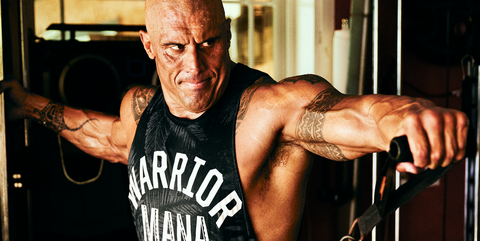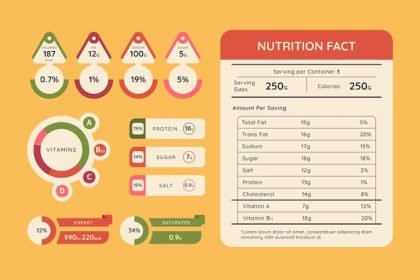
Rich Froning is the original CrossFit GOAT. He was crowned the “Fittest Man on Earth” in 2011, ‘12, ‘13, and ‘14 and then moved on to dominating the sport’s team competition with the affiliate he owns, CrossFit Mayhem, taking the title five of the last seven years.
With over a decade of experience in competitive CrossFit, Froning is an exceptional athlete and the de-facto coach for the growing stable of promising up-and-comers who now live and train with him in Cookeville, Tennessee. The list includes 21-year-old Guilherme Malheiros, a Brazilian who finished 7th at the 2021 Games and was voted most improved; and 20-year-old Haley Adams, who finished 5th this year and 4th the year before.
Men’s Health caught up with Froning in between training sessions as he picked his kids up from school.
Contents
- 1 The CrossFit season won’t officially start until the first week of the Open at the end of February, so what does your training look like at the moment?
- 2 What would you consider your off-season? When does training really ramp up for you?
- 3 You said this is supposed to be a break for you mentally, but is it difficult for you not to take the mountain biking as seriously as you’d take your training right before the Games?
- 4 Is there anything else that you do to work out or stay active but doesn’t have that same kind of mental intensity behind it that training does?
- 5 Do you feel like you’ve kind of seen everything in the sport at this point?
- 6 Some athletes are obsessed with trying to predict what could come up at the Games. Is that something that concerns you?
- 7 In terms of your role on the Mayhem team, do you see yourself as a coach?
- 8 For you, does saying you’re a coach feel like you’re no longer an athlete, too?
- 9 With these younger athletes that you’re mentoring, do you see them making mistakes that you made as young athletes?
- 10 What are the lessons that you had to learn yourself?
- 11 You said it’s easiest to be coached by someone who’s been there before, but when you were competing as an individual, no one had really been there before. Do you think it was valuable for you to figure out all of that on your own?
- 12 Especially now I think it’s so common to watch Instagram videos for an hour and a half and feel like you’ve trained.
- 13 Is there a skill that you’ve learned recently?
- 14 Having mastered so many movements in CrossFit, was it frustrating to have to start from scratch?
- 15 Is it hard for you not to get overly competitive with all the other athletes you’re training with?
- 16 What’s your diet looking like?
- 17 What are you doing for recovery?
The CrossFit season won’t officially start until the first week of the Open at the end of February, so what does your training look like at the moment?
Thursday is usually a lighter-on-the-joint type day, like a swim and maybe a bike in the afternoon. Fridays, when I’ve got no kids at all, I try to cram it all in and then be done by the time they’re home from school.
For me, it’s the off-season. For these guys, they’ve got real competitions coming up, like a couple of them are doing Dubai in December, and so it’s hard for me at times to be like, “Okay, just let them go, and if they want to do more, they can do more.”
These kids are in their 20s and I’m mid-30s, so I feel. I feel really, but I’m just trying to remind myself that, one, I’m not 21 anymore, and two, it’s the off season for me. So, I’m trying to get some stuff done around the farm and hang out with my kids as much as I can.
What would you consider your off-season? When does training really ramp up for you?
I mean it’s hard because you’ve got the holidays, but I get a little more structured around late December, early January. This year I’m going to do Wodapalooza in January with Luke Parker and Angelo DiCicco. It’s just a three-man team, as opposed to the two-man, two-woman team at the Games, so that’ll be fun. I’ll start training seriously around that time, and then right after that the Open starts.
I used to just train year-round, and I was like, why am I doing this? You need a little bit of downtime mentally more than physically. Physically, I was still training quite a bit. I work out quite a bit, but I don’t train if that makes sense. If there’s something that I don’t want to do for a couple of months, I’m like, you know what? I’m not going to do it.
Instead, we swam a lot. We did an off-road triathlon. I’ve been doing a lot of mountain biking. I actually really enjoy that. It’s good fitness, but it’s also fun. We’ve got a little bit of a course at the house that we built, about two or three miles right now. And so I’ll set the clock, and if I have an hour, I’ll do as many laps as I can. You basically hit the bottom loop and the top loop, and you’ve got some nasty climbs in there. It’s more of interval training, but the intervals are set by the landscape more than anything.
You said this is supposed to be a break for you mentally, but is it difficult for you not to take the mountain biking as seriously as you’d take your training right before the Games?
Oh yeah. This year we did do it leading up to the Games, but we went to a place in town that’s a little bit more flowy, a little less technical. So the risk for injury is a little lower than at the house. But you’ve got to remember that I grew up riding four-wheelers, so I like to push the envelope probably a little bit more than I should. So you know, they give me crap because I wear a full-face helmet just because I like to ride probably a little bit harder than I should.
Is there anything else that you do to work out or stay active but doesn’t have that same kind of mental intensity behind it that training does?
We started up a bodybuilding track, more of your classic kind of old school meathead stuff. And so on days when I just don’t feel like hurting, out of breath, I’ll click over to that and do a traditional upper-body pump session.
I mean, it just feels good to do every once in a while. You get so burnt out with what we do and as long as I’ve been doing it, it’s fun to change stuff up and do different things every once in a while.
Do you feel like you’ve kind of seen everything in the sport at this point?
I think I’ve seen 98% of it. You know, I think there’s still some things that can be added and will be added, and there’s always new things creeping in. Like we haven’t seen a pure sprint triathlon on the first day of the Games. You’ve seen a few variations of it.
Kayak was new this year. We’ve kayaked a little bit before for training just because we didn’t know if it was going to pop up. But I’m sure there’s something out there that would fit well that nobody’s really seen or added to the menu of possible movements. And I think that’s cool.
Some athletes are obsessed with trying to predict what could come up at the Games. Is that something that concerns you?
No. We’ve given up on that over the years.
This time of year, you can try some new things and then once it gets to be late fall, early winter, you kinda know what’s going to show up in the Open, Quarter Finals, and probably Semi Finals. So after Semi Finals, that’s when you start doing those kind of obscure things.
The reason I started CrossFit was to scratch the itch of playing sports again, and so I still like to play sports. In the fall and spring I played in a flag football league, and I played in a softball tournament this fall as well. It’s the first time I’ve done that in about 10 years, and I think it’s good to test those different skills. You don’t think of it necessarily as training, but playing football is going to help us in agility and speed.
In terms of your role on the Mayhem team, do you see yourself as a coach?
I’m more of a mentor at this point. I wouldn’t put myself in the coaching role just yet. Jake Locker and Facundo do a really good job of that. I’d say I’m more of a glorified training partner slash mentor. I’m going to give everyone some tips, but I don’t know if I could take on a full coaching role just yet because I still enjoy being an athlete first. I guess I’m a little bit selfish in that regard because I’ve only got so many more years, and time is undefeated, as they say. So I’m trying to transition into that role a little bit more slowly.
For you, does saying you’re a coach feel like you’re no longer an athlete, too?
No, not necessarily. I just feel like, to be a coach I need to be way more involved. I need to be a little bit more concentrated on them than I am myself. So as a mentor slash training partner, I’m still training hard, still watching, but I’m still trying to do things for myself.
But at the same time I’m also realizing that being an athlete isn’t everything. Up until even I guess this last year I used to look forward to every time I’d go train. And I still do that in the morning, but when that second session rolls around, now I’m like, I could go play with my kids a little bit longer, so it might be a little easier to mis that second session as I get older.
With these younger athletes that you’re mentoring, do you see them making mistakes that you made as young athletes?
Yeah, 100%, especially with Haley last year. A couple of times we had a “Hey, I told you so” type moment. It was — she just wants to work. The kid wants to work, and she wants to get better, and sometimes that’s resting more, eating more, or sleeping more instead of training more. She’s incredibly fit, but we all know she’s got to get stronger. And at some point you start to inhibit your strength gains by all the volume that you’re doing, and she just couldn’t wrap her brain around that. But those are just the things you’ve got to learn on your own.
What are the lessons that you had to learn yourself?
I was just the opposite. I had to do the slower, longer cardio stuff, and I learned that just through failures at the Games, most notably falling off the rope in 2010, the run in 2011 in the soft sand, the pool event in 2013, and then having to walk in the Triple Threes in 2014. Those are pretty vividly locked into my memory. Even if you did win overall, you still looked like a jackass in front of thousands of people.
You said it’s easiest to be coached by someone who’s been there before, but when you were competing as an individual, no one had really been there before. Do you think it was valuable for you to figure out all of that on your own?
Absolutely. Personally, I think experience is the best teacher.
Especially now I think it’s so common to watch Instagram videos for an hour and a half and feel like you’ve trained.
It’s good to do research on the person or the programming you’re going to follow, but I think as a society we want a quick fix, or we want to move on to the next best thing. But give stuff time. The old adage — Rome wasn’t built in a day — it’s true.
Is there a skill that you’ve learned recently?
Mountain biking is something I’ve really dug into and practiced over the past couple of months, and it’s a steep learnign curve. Once you grab the front brake instead of the rear brake and slip over the handlebars, you’re probably not going to do that again.
Having mastered so many movements in CrossFit, was it frustrating to have to start from scratch?
For sure. I mean, you want to be good at anything when you first start. And for being, being an athlete my entire life, I don’t like to suck at anything. But you just need to give it time and have fun along the way.
Is it hard for you not to get overly competitive with all the other athletes you’re training with?
With everyone we train with, you kinda know, “Hey, this is their thing. Just kind of let them go.” But yeah, it is hard for me. It comes down to ego, and there are times when I know I can smash some of these younger kids, so I’m going to try and smash them, just to let them know that, hey, I may be old, but I’m still here.
What’s your diet looking like?
One of the big things I’ve done is intermittent fasting, so I eat between noon and 8pm. My problem was I used to eat breakfast, not eat throughout the day and eat again after all my training sessions. So this actually makes me in between those first and second training sessions.
What are you doing for recovery?
I push when I can and when I know I need to I back off. Other than that, I do a lot of the normal stuff: massage, rolling out, body work. For the last six months, I’ve been doing cold plunges, usually 50 degrees for about 10 minutes. I really like that.
[“source=nerdwallet”]



